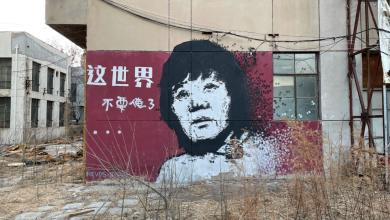What Happened in Feminism This Summer?
Written by: Vivian Giang and Ceejay Lee
This summer, feminism had celebrated some victories and faced some defeats – all of these serving to remind us how social justice is not a stagnant state but an ongoing movement filled with tears, sweat and hard work. With that in view, what better way is there to start off a brand new year than to review what happened in the past few summer months – not only to orient ourselves for the tough journey ahead but also to savor every inch of progress forward as fuel for the future.
JUNE
The Supreme Court decided in Burwell v. Hobby Lobby that family-owned companies do not have to provide “a full range of contraceptives” in their health care policies for their employees, as doing so would infringe upon their religious liberty. Instead, they can opt out of providing employees with contraceptives that “violate their religious conscience,” such as Plan B (the morning after pill).
Towards the end of the month, the Supreme Court struck down a Massachusetts law that created a 35-feet “buffer zone” outside abortion clinics, citing that it limited freedom of speech. While the ruling left smaller buffer zones intact in other states, pro-choice organizations such as Planned Parenthood expressed concern that it would become more dangerous for people to access and obtain abortions.
JULY
Jewish-owned shops and a synagogue in France were vandalized after a pro-Palestinian rally turned into anti-Semitic violence. Along with attacking a synagogue, rioters chanted “Gas the Jews” as they attacked businesses in Sarcelles, in northern Paris, according to locals.
A month after the Supreme Court declared the Massachusetts “buffer zone” law unconstitutional, MA governor Deval Patrick passed a new law that allows peaceful protests outside abortion clinics at any distance, but cannot block entrances to clinics. It also prohibits the use of intimidation and threats towards people entering and leaving the clinics.
Sixteen-year-old Jada’s rape went viral after a picture of her laying unconscious on the floor was shared on social media. People mocked her online by copying the pose and adding “#Jadapose,” which was how she found out that she had been sexually assaulted. Jada decided to share her name and story with several high-profile news channels, explaining that while people already know what she looks like, that’s not who she is. More than a funny meme that trended on twitter, she is an actual person who was a victim of sexual assault.
AUGUST
Uganda’s Constitutional Court declared the Anti-Homosexuality Act null and void. According to the Court, when the law was passed, the Speaker had not established quorum (the minimum number of members required to be present to vote), and therefore the law was invalid. Even as many activists, including Frank Mugisha and Kasha Jaqueline, celebrated, they also acknowledged that there were still many roadblocks for LGBTQ rights in Uganda.
California emerged as the first state to enshrine “yes means yes” in the law, instating a victim-centered approach to defining sexual consent, commonly termed as “affirmative consent”. This standard is nothing new – in fact, it was introduced at Antioch College in as early as 1991 to great skepticism and criticism. However, this positive legislative recognition signals a paradigm shift in our treatment of sexuality and, hopefully, ushers in a new era of greater sensitivity towards issues pertaining to sexual assaults and their victims.
In blatant disregard of human dignity and rights, the inmates in Western Massachusetts Regional Women’s Correctional Center were subjected not only to invasive strip searches but were also videotaped throughout the whole process. The federal court in Massachusetts ruled the search “plainly unconstitutional”.
SEPTEMBER
Hundreds of fast food workers in six cities were arrested as authorities refused to acknowledge the act of civil disobedience in pursuit of a $15-an-hour minimum wage. Restaurant trade groups denounced the act, citing rise in menu prices and decrease in profit margins as key reasons.
In September, the anti-immigration Sweden Democrats received 13% of the vote in national elections. The market reacted, with the Krona sliding against the Euro. According to a BBC profile on the party, they had been linked to neo-Nazis and other extremists for years, although they officially have a policy of zero tolerance for racism.
For the second time this year, the Paycheck Fairness Act was rejected in the Senate again this summer. The bill is touted to be pivotal in genuinely bridging the wage gap between women and men. Despite that, the Paycheck Fairness Act has repeatedly encountered much friction in gaining full support, arguably due to partisan politics.
Towards the end of the month, YouTuber Sam Pepper uploaded a prank video that garnered widespread attention — specifically, criticism. In a video titled “Fake Hand Ass Pinch Prank,” now removed, Pepper hid one hand under a hoodie, asked women for directions, and then proceeded to pinch their butts and blame it on passersby. He was called out by several popular YouTubers, such as Hank Green, Laci Green, and Franchesca Ramsey.





